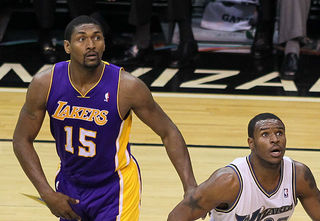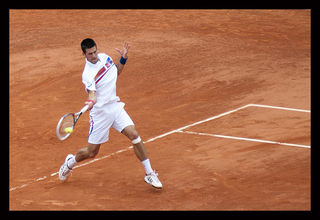
Infidelity
How Important are Mental Components of Success?
From "choking" to cheating on exercise, sports psychologists can help.
Posted December 9, 2015

If you have ever been a victim to that terrible, seemingly paradoxical state of mind where thinking too much actually causes you to perform poorly, or as more commonly known, “to choke”, then you know how horrible and frustrating such an experience can be. Even witnessing, or hearing about "choking" can make us uncomfortable. Thankfully there is a whole domain of psychologists to whom we can turn for help with performance anxiety- sports psychologists. Sports psychology is an interdisciplinary specialization whose members are engaged in the science and practice of psychology within sport, exercise and human performance. And "choking" is not the only issue that these psychologists address. Sports psychologists help people (professionals and non-professional athletes alike) in a variety of arenas with psychological factors that affect sport, performance, exercise, physical activity and team dynamics such as focus, confidence, fear of failure, exercise adherence, communication skills, motivation, and emotional control.
Sports Psychology is a Hot and Diverse Field.

For those of you who hope to become sports psychologists, there are two facts about the United States that currently bode well for your aspiring-to profession. First, we live in a sports loving society, with roughly six in 10 people identifying themselves as sports fans1. Sports have a large influence on economic activity and the market related to sports is huge. As the amount of money involved in professional sports continues to increase2, coaches, players, managers, and others face increasing pressure to get an edge over their competitors. In the world of professional sports where a player is typically at his or her peak physical state, an edge is often found by focusing on an athlete’s mental state. For instance, with the crowd clearly in favor of Roger Federer at the 2015 men’s final of the U.S. open, Novak Djokovic used the hostile crowd to his advantage- he told himself the cheers were for him, and ultimately this mental ingenuity enabled Djokovic to defeat Roger Federer for the title3.
The second fact that is favorable for the field of sports psychology is that there is currently a public push for Americans to become more physically active, due in part to the steady increase in rates of both obesity and type 2 diabetes4. This push is evident countrywide, with physical activity campaigns sponsored on a governmental level by institutions such as the National Institutes of Health and the Center for Disease Control, as well as on a commercial level, with the growth of fitness programs such as CrossFit and the increase in fitness related apps available for consumers. Since many of the common barriers to regular exercise are mental (e.g. lack of motivation, lack of confidence, lack of self-management)5, sports psychologists will be playing important roles in developing and educating people and institutions on ways to overcome these barriers.
Sports psychologists work in a variety of settings and perform diverse functions. One sports psychologist may work for a university, conducting research in mental aspects of exercise, while another may have a private consulting business, hired by parents of high school athletes to teach mental training techniques. In fact, sports psychologists have been hired by professional and Olympic sports teams, professional performance companies, colleges and universities, the military, hospitals, and prisons. Because their work is so varied, the pay of sports psychologists varies as well- with annual salaries ranging from $60,000 to more than $100,0006.
Becoming a Sports Psychologist

The path to becoming a sports psychologist is still evolving but in general, it is not possible to be called a sports psychologist with only a bachelor's degree. Rather, students need to earn a PhD from a clinical, counseling, or experimental doctorate program in psychology and have additional, formal training in sports psychology. This additional training may come in the form of courses they take during their PhD training, (e.g. kinesiology, physiology, sports medicine, business, and marketing) or students may pursue a master’s degree in sports psychology either before or after obtaining a PhD in psychology. There are however, a handful of schools that offer doctorate programs in sports psychology itself or offer doctorate programs in psychology with a concentration in sports psychology. To help prospective sports psychologists determine how to proceed, the Association for Applied Sport Psychology has a program that matches students with mentors who can provide training and career guidance. If you are interested in learning more about sports psychology and requirements for becoming a sports psychologist, visit the APA’s website for division 47. If you have questions or comments, please feel free to post below. We would love to hear from you!
Please note that the comments of Dr. Golding and the others who post on this blog express their own opinion and not that of the University of Kentucky.
Want More?
Check out our website for more information about psychology careers.
Get information from Dr. Golding on how to succeed in college.
Follow us on twitter.
References
1. http://www.gallup.com/poll/183689/industry-grows-percentage-sports-fans…
2. http://www.wrhambrecht.com/pdf/SportsMarketReport_2012.pdf
3. http://www.nytimes.com/2015/09/15/sports/tennis/novak-djokovics-winning…
4. Klonoff, D. C. (2009). The Increasing Incidence of Diabetes in the 21st Century. Journal of Diabetes Science and Technology (Online), 3(1), 1–2.
5. http://www.cdc.gov/physicalactivity/basics/adding-pa/barriers.html
6. http://www.apa.org/gradpsych/2012/11/sport-psychology.aspx

